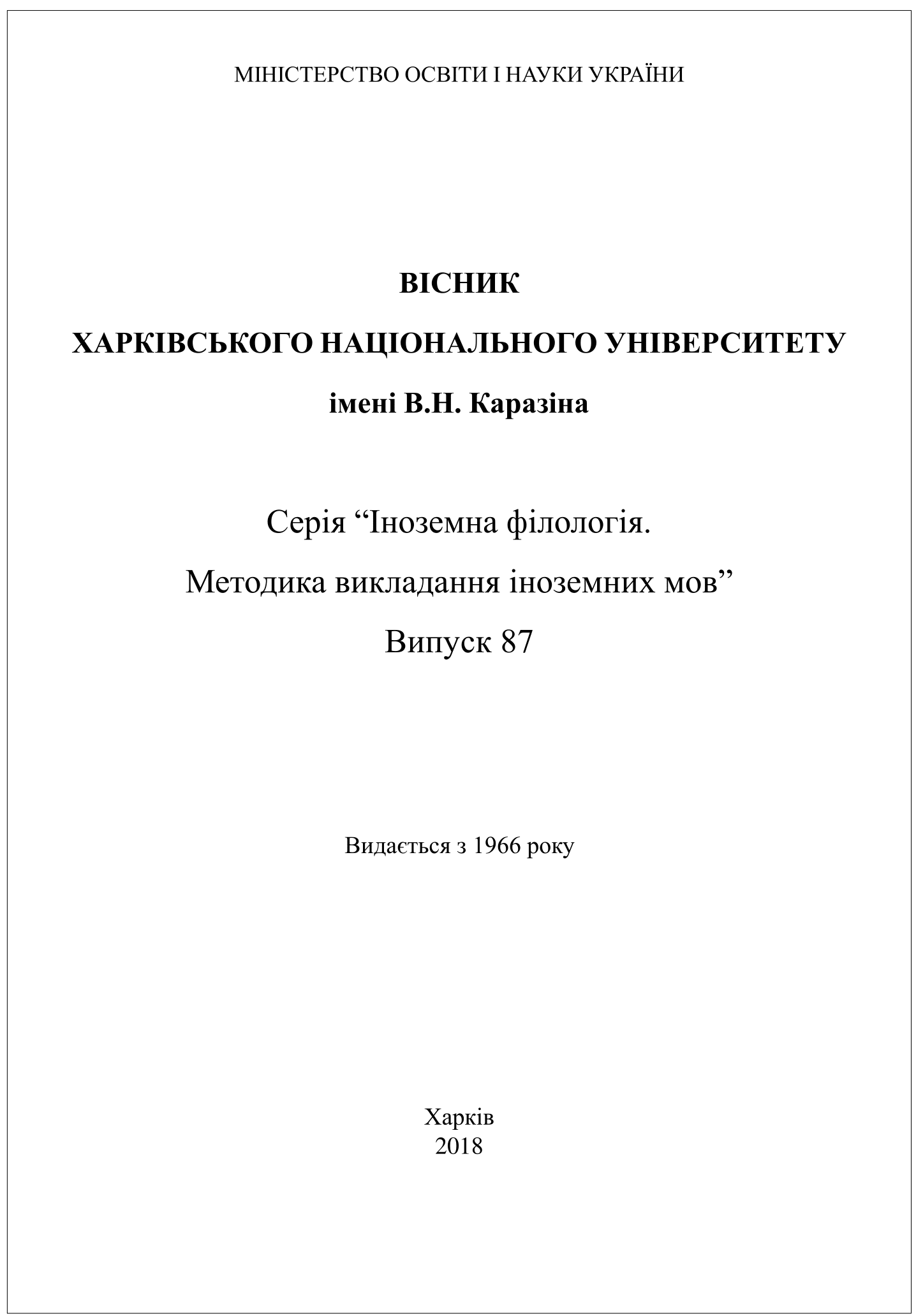Metaphorical Representation of the Concept SCARCITY in the Mass Media Discourse
Abstract
The article considers linguistic means of metaphorical representation of the terminological cognitive concept SCARCITY, as well as the range of its cognitive metaphors in the English-language media discourse in 1970–2000. Following the principles of the cognitive metaphor theory, I established the cross-domain mappings and, in particular, that the concept SCARCITY interacts with the source domains OBJECT IN SPACE (subdomains MOVEMENT DOWN / MOVEMENT UP), MEDICINE (subdomains DISEASE / EPIDEMIC, MENTAL DISORDER, DEATH), LIVING ORGANISM (subdomains MAN, ENEMY), forming cognitive metaphor models SCARCITY is MOVEMENT DOWN / UP, SCARCITY is DISEASE etc., which also participate in the metaphorical representation of the concept ECONOMIC CRISIS that I considered in my previous articles. This can be explained by the fact that lexeme scarcity (n.) as the name of the concept SCARCITY is an element of the nominative field of the concept ECONOMIC CRISIS, in particular, its extension “Shortage of financial resources” motivated by the general semantic property ‘shortage’.
The range of metaphors (source domains) for the concept SCARCITY is a part of a historically stable set of source domains of the cognitive metaphor of the concept ECONOMIC CRISIS. The set of the source domains of the concept SCARCITY differs in a more limited range of source domains compared to those of the concept ECONOMIC CRISIS. The former’s set of domains includes OBJECT IN THE SPACE, MEDICINE, LIVING ORGANISM instead of the eight source domains of the concept ECONOMIC CRISIS. There is also a more limited set of metaphorical models in comparison with the concept ECONOMIC CRISIS and absence of metonymic and metaphtonymic models, which indicates a more pronounced degree of terminology for the concept SCARCITY compared to ECONOMIC CRISIS.
Downloads
References
The British National Corpus. TIME Magazine Corpus. (n.d.). Available at: https://corpus.byu.edu/time/
Chudinov, A.P. (2001). Rossija v metaforicheskom zerkale: kognitivnoe issledovanie politicheskoj metafory (1991–2000) [Russia in a Metaphorical Mirror: Cognitive Study of Political Metaphors (1991–2000)]. Ekaterinburg: Ural. gos. ped. un-t Publ.
Collins English Dictionary and Thesaurus. Complete and Unabridged. (1991). Available at: http://www.collinsdictionary.com
Coulson, S. (2005). Blending and Coded meaning: Literal and Figurative Meaning in Cognitive Semantics. Journal of Pragmatics, 37(10), 1510–1536.
Flinn, S.M. (2012). Jekonomika dlja «chajnikov» [Economics for Dummies]. Moscow: Dialektika Publ.
Historical Thesaurus of the Oxford English Dictionary: with additional material from A Thesaurus of Old English. (2009). Oxford: Oxford University Press
Kövecses, Z. (2010). Metaphor: A Practical Introduction. Oxford: Oxford University Press
Lakoff, G. (2003). Metaphors We Live By. London: University of Chicago Press
Lakoff, G. (1993). The Contemporary Theory of Metaphor. In: A. Ortony (ed.). Metaphor and Thought. Cambridge : Cambridge University Press
Olejnyk, N.A. (2015). Koncept EKONOMICHESKIJ KRIZIS v anglojazychnom ekonomicheskom diskurse 1930-h i 2000-h godov. Diss. kand. filol. nauk [The concept ECONOMIC CRISIS in the English economic discourse of the 1930s and 2000s. Cand. philol. sci. diss.]. Kharkov. 245 p. (in Russian)
Olіjnik, N. (2017). Koncept NESTACHA/SCARCITY v anglomovnomu ekonomіchnomu diskursі. [Concept SCARCITY in the English Economic Discourse]. Pіvdennij arhіv. Fіlologіchnі nauki. Zbirnyk naukovykh prats. – Southern archive. Philological Sciences. Collection of papers, LXIX, 114–118 (In Ukranian)
Ortega-i-Gasset, H. (1990). Dve velikie metafory [Two Great Metaphors]. In: N.D. Arutiunova (ed.). Teorija metafory [Theory of Metaphor]. Moscow: Progress, pp. 68–81.
Shevchenko, I.S. (2015). Istoriko-kognitivnye issledovanija: voprosy jevristiki [Historical and cognitive studies: heuristics issues]. Fіlologіchnі studії. – Philological Stuies, 5, Available at: http://studiap.kubg.edu.ua/index.php/journal/article/download/124/125
Talmy, L. (2000). Towards a Cognitive Semantics (Vol. 1). Cambridge, MA: MIT Press




